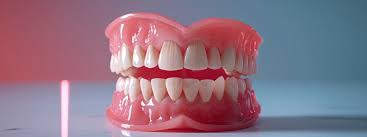Navigating the world of dentures can feel overwhelming, but the proper guidance can simplify your choices. Whether you are exploring options for yourself or a loved one, understanding the different types of dentures and how to approach replacements makes the process smoother and more reassuring. Here are some of the different types of dentures:
Complete Dentures
When all natural teeth in an arch are missing, complete dentures offer a reliable replacement. These rest directly on your gums and can restore the look and function. Modern advancements allow for a comfortable fit and natural appearance, so you can speak and eat more easily.
Complete pieces are ideal for individuals who have lost most or all of their teeth in the upper or lower arch. They are particularly suited for those whose gums and jawbone can adequately support the fitting. People who strive to restore their smile and improve their ability to chew and speak comfortably are excellent candidates for this type of restoration.
Partial Dentures
If you still have some natural teeth, partial dentures might be an option. They fill the gaps left by missing teeth and help maintain the proper alignment of your remaining teeth. Partial dentures are typically anchored to neighboring teeth and are easy to remove for cleaning. Here are some of the key benefits of partial dentures:
- Prevent remaining teeth from shifting out of place
- Enhance your ability to chew and speak
- Blend with your natural teeth for a seamless look
Custom-fitted Dentures
Custom-fitted dentures are tailored to your mouth for those seeking extra comfort and a more natural appearance. The process involves taking detailed impressions to create replacements. They’re designed to match the contours of your gums and jaw. This personalized approach increases comfort and ensures a secure fit, helping you feel more at ease throughout your daily activities.
Good candidates for custom-fitted dentures include individuals who have lost several or all of their teeth and seek a comfortable, natural solution. They are also an excellent option for people with dental implants. These can be customized to fit seamlessly over the implants, providing added stability. Additionally, those experiencing discomfort with traditional pieces may find that custom-fitted options offer a more secure and personalized fit.
Replacements and Adjustments
Over time, your mouth and gums can change shape. A dental professional can assess the fit and recommend adjustments or replacements if your fitting feels loose or uncomfortable. Regular checkups help you maintain comfort and avoid irritations. Here are some steps to maintain your dentures:
- Remove and clean your dentures daily using a gentle brush
- Store them in water or a denture solution when not in use
- Schedule regular dental visits for fit checks and oral health assessments
By learning about your options, you can choose to support your comfort and well-being best. If you need further guidance, a dental professional can answer your questions and help you find the most suitable path forward.
Ask a Dentist Whether Dentures Are Right For You
Dentists are trained to provide expert advice on the care and maintenance of dentures, making sure they remain comfortable and functional. They can also help identify and address issues, such as sore spots or improper fit, before they become significant problems. If you’re unsure about cleaning techniques or need adjustments, contact your dentist, the best resource for personalized guidance and solutions.


Leave a Reply